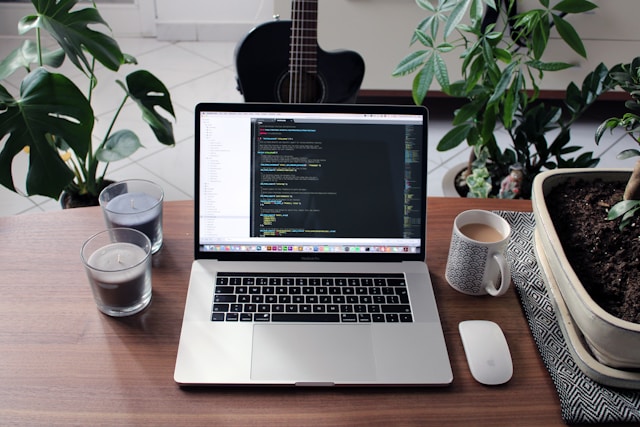
Photo by Nathan da Silva on Unsplash
The good news? You don’t need to be a computer whiz to secure your WordPress site. Below are some easy things you can do to beef up your defenses and keep your business safe:
Lock Down Your Login
Think of your login page as the front door to your website. Here’s how to make sure it’s extra secure:
Strong Passwords are Mandatory
This one might seem obvious, but it’s worth repeating. Ditch the birthdays and pet names. Use a strong, unique password for your WordPress admin account. Consider a password manager to generate and store complex passwords for all your online accounts.
Two-Factor Authentication is Your Friend
Two-factor authentication (2FA) adds an extra layer of security by requiring a second verification code after you enter your password. This code can be sent to your phone via text message or generated by an authentication app. Even if a hacker gets their hands on your password, they won’t be able to access your site without the additional code.
Limit Login Attempts
Stop brute-force attacks in their tracks by limiting the number of login attempts allowed within a specific timeframe. If someone keeps entering the wrong password, they’ll be locked out for a set period. This discourages hackers and prevents them from constantly trying to guess your password.
According to Attentus.Tech, these security measures are essential for any WordPress site. By following these steps, you can significantly improve the security of your WordPress login page and make it much more difficult for hackers to gain access to your site.
Be Proactive with Security
Don’t wait for a security breach to happen before taking action. To secure your website, here are some proactive measures you can take:
Regular Backups are a Must
Backing up your website regularly is crucial. In case of a security breach or technical malfunction, a recent backup allows you to restore your website quickly and minimize downtime. There are many backup plugins available for WordPress, making this process simple and automated.
Security Scans Provide Peace of Mind
Run regular security scans on your website to identify vulnerabilities. These scans can detect malware, outdated software, and other security risks. There are free and paid security plugins available that can automate this process.
Limit User Permissions
Not all users on your website need full admin privileges. Assign user roles based on their specific needs. For instance, a content writer wouldn’t need access to plugin settings. This helps minimize potential damage if a user account is compromised.
Once you take these proactive steps, it’s possible to reduce the risk of a security breach and ensure the smooth operation of your website.
Keep Everything Updated
WordPress, themes, and plugins all have updates for a reason: they often include security patches to fix vulnerabilities. Here’s how to stay on top of things:
Update WordPress Regularly
Whenever a new version of WordPress is released, update your site as soon as possible. These updates often contain critical security fixes that protect your site from known exploits.
Update Themes and Plugins Wisely
Outdated WordPress security plugins and themes can be a security nightmare. Make sure to update them regularly, but be selective. Research any updates before installing them, as some can introduce compatibility issues. Consider disabling or deleting plugins you no longer use.
Keeping your WordPress core, themes, and plugins updated is crucial for maintaining the security of your website. According to PCS’s support team, while updating plugins and themes frequently is important, it’s also wise to research updates beforehand to avoid compatibility problems. Additionally, consider disabling or removing plugins you no longer use.
Secure Your Hosting Environment
Your web hosting provider plays a big role in your website security. Here’s what to look for:
Choose a Reputable Hosting Provider
When choosing a web hosting company, prioritize security. Look for providers with a strong track record of protecting their customers’ websites. Don’t be afraid to ask questions about their security measures.
Secure Sockets Layer (SSL) is Essential
An SSL certificate encrypts the data transmitted between your website and visitors’ browsers. This protects sensitive information like credit card details and contact forms. Make sure your hosting plan includes an SSL certificate or purchase one separately.
In addition to these points, a secure hosting environment should also offer features like regular backups, intrusion detection, and firewalls. By choosing a secure web hosting provider, you can help safeguard your website and your visitors’ data.
Conclusion
Securing your WordPress site might seem overwhelming, but don’t worry. By following these best practices, you can create a layered defense that keeps your website safe. Remember, security is an ongoing process. Make it a habit to check for updates regularly and stay informed about new threats. With a little effort, you can keep your WordPress site secure and your business thriving.
